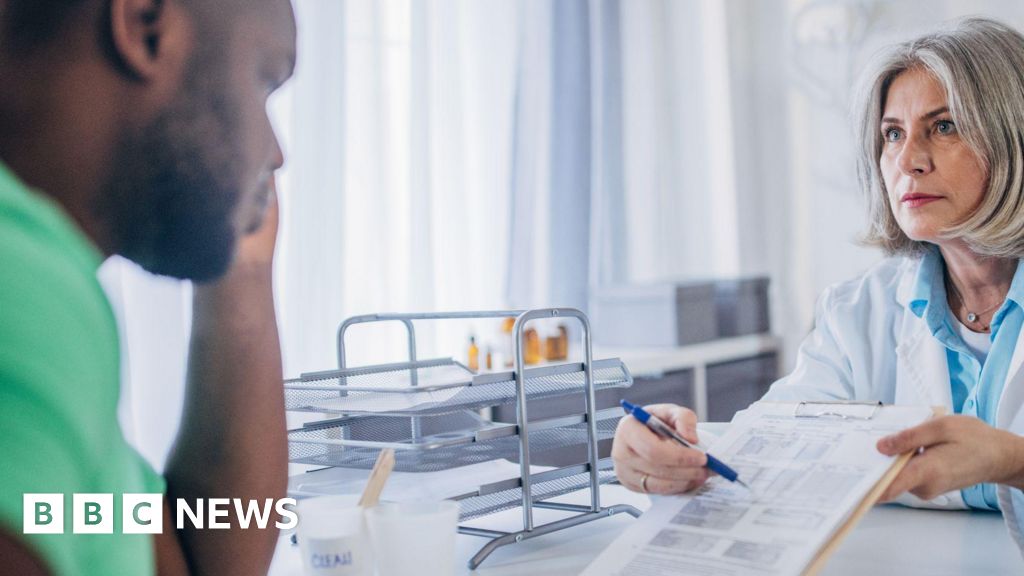Sperm donor compensation has risen from £35 to a maximum of £45 per clinic visit.
The £10 rise comes into effect in England, Wales and Northern Ireland from 1 October, when egg donor compensation also rises from £750 to £986.
It is illegal to pay someone to donate sperm or eggs in the UK so the money is to cover expenses such as travel and accommodation. Sperm donation can involve visiting a clinic once a week for three to six months.
The UK fertility regulator acknowledged a shortage of egg and sperm donors. But it warned donating was a “complex decision” and any child born had the right to contact their biological parents after reaching 18 years old.
One sperm donor, who the BBC is calling Joseph, said the £35 he received for each clinic trip did not compensate him “anywhere near enough” for his time and travel – but said his motivation was to help people.
“I’m a married gay man and we adopted our son so we didn’t have the normal route that most heterosexuals couples will have had into parenting,” he said.
“Going through the adoption process, you meet a lot of straight couples who have had fertility problems. So I wanted to help and give someone a chance to start a family, whether it’s someone with fertility problems, a lesbian couple or a single person.”
It is the first time compensation for sperm and egg donors in England, Wales and Northern Ireland has risen since 2011.
The Human Fertilisation and Embryology Authority (HFEA), which sets the amount of compensation, said the change was partly due to inflation being high in recent years, but it warned against donating sperm or eggs for the money.
“Choosing to become a donor is a complex decision, with implications for the donor and their wider family, the recipient, and any child born as a result,” a spokesperson for the fertility regulator said.
“Donors will go through rigorous medical screening and must be comfortable with the fact that any children born from their donation can contact them when they turn 18,” the HFEA spokesperson said.
Joseph said he was happy with the new compensation rate of £45 per clinic visit.
He added: “I think it’s difficult to strike a balance between compensating somebody and then paying too much and then making it a financial incentive.”
But there are groups who are concerned about the rise in compensation.
Helen Gibson, founder of Surrogacy Concern, a UK group which campaigns on issues relating to surrogacy and gamete donation said the organisation did not support “any payment for gametes”.
“Donations cannot be called altruistic while money is exchanged,” she said.
“Young people’s bodies are not resources to be mined for the benefit of older, wealthier couples and individuals. If there is a ‘shortage’ of donors coming forward, perhaps that reflects the fact that most people do not want their genetic children to be raised by others.”
One way to tackle a sperm shortage is by importing it. The HFEA says the majority of imported sperm in the UK comes from sperm banks in the US and Denmark.
Nicole Nel, operations and laboratory manager at the London Sperm Bank, believes the shortage is not due to a “lack of applicants” in the UK, but “the lack in the quality of the applicants”.
She also claimed the way people live their lives nowadays could be affecting the quality of sperm, adding that the London Sperm Bank can only accept a small percentage of people who apply to be donors.
Ms Nel also believes the narrative is changing surrounding the typical sperm donor.
Sperm donors in the UK generally need to be between the ages of 18 and 45.
“Maybe 20 years ago it was students but I think now it’s a very healthy combination of people because infertility has become a more widely discussed topic and awareness has been increased around it,” she said.
“I think the type of person that actually ends up becoming a donor is someone that is more aware of what they’re doing, it’s not your typical student just looking for an easy way to make money.”
The HFEA said UK sperm donors commonly visit a clinic “once a week for between three and six months”.
One of these visits will involve ejaculating into a sterilised cup and the sperm is then frozen and stored.
It is not possible to donate anonymously and all donors are made aware that any child born can contact them once they turn 18.

